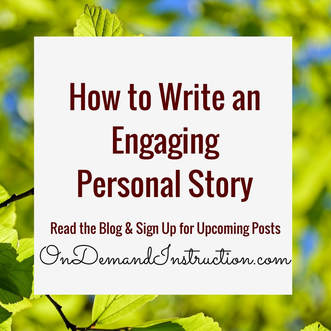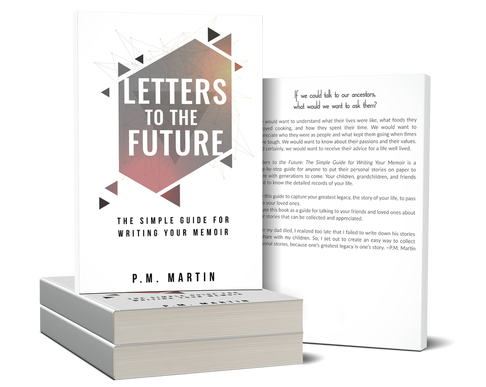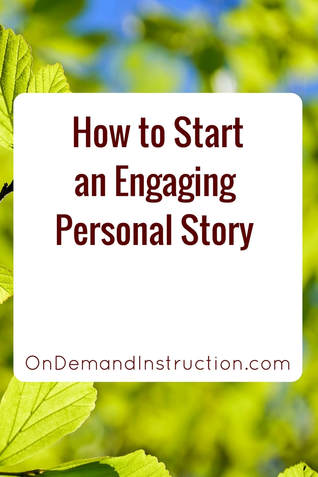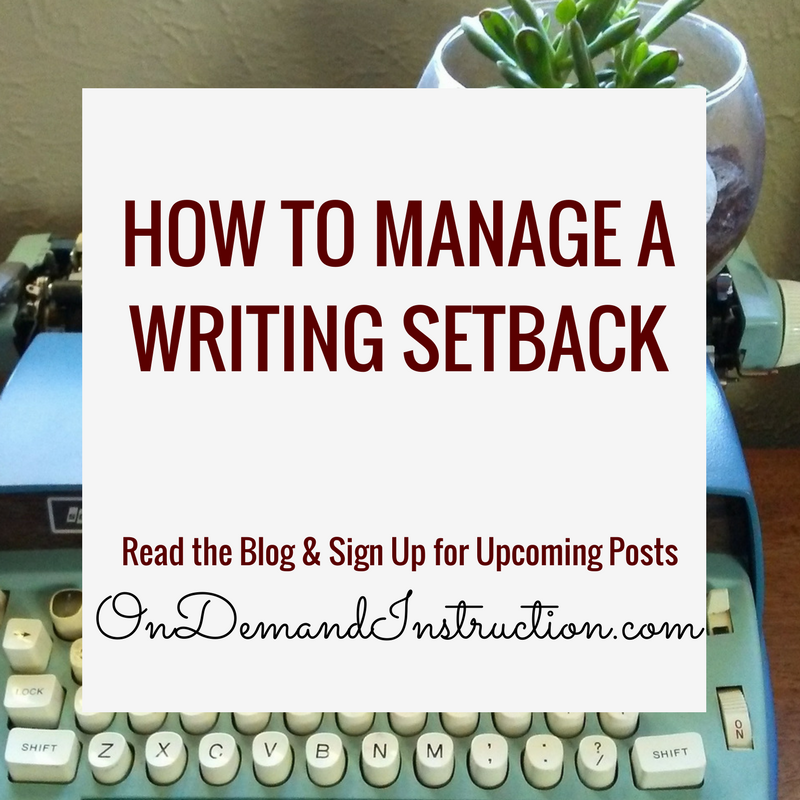Why Write About Yourself?  Some people feel uncomfortable writing about themselves. The idea seems a bit egotistical that one person has a story so valuable that it needs to be captured, and the idea of sharing that story may feel even more uncomfortable. Humans are judgmental creatures so many of us shy away from sharing the personal elements of our lives too freely. It may feel that way for some people, but readers want that personal connection that comes from a personal story. The personal story is where genuine, deeply-valuable writing can germinate. Don’t believe it? Imagine this. What is you had a copy of your grandfather’s story of meeting your grandmother? What if you had a copy of your great-aunt’s story of immigrating to escape hardship in her home country? What is you had a copy of your cousin’s story of battling cancer before he succumbed? You probably get the point. Our personal stories do not have to be perfect, they do not have to be publishing-worthy, and they do not have to be prize-winning to be the most valuable stories in our lives. If I had a copy of my grandfather’s story, no matter how many spelling errors it contained, it would be one of my most prized possessions. Just the thought of having something he wrote that was deeply impacting for him would heighten its value; that is the effect a personal story should have. Yes, when we write about ourselves, we may feel self-conscious, but the outcome product of a personal story and the powerful effect that story can have on our intended audience can have a considerable effect. The potential of the personal story lies in its pathway to connect reader and writer together by revealing intimate details about the writer in a manner that elucidates the writer’s quality as a person. Starting the Personal StoryAs with many pieces of writing, getting started can be the hardest part. Brainstorming what to write about, the details to include, and the tone to employ tend to come freely, but that first line can allude the most competent writers. Rhetorical question The rhetorical question can be one way to start a personal story. The question without an answer tends to attract and involve readers from the first line, because it encourages the reader to engage a curious mindset by asking questions. Consider these examples to see if this style may work for your piece. Why would my beloved brother Ethan push me off a cliff like that? What do slugs, snails, and puppy dog tails all have in common? Why would Disney encourage princess dresses when astronaut suits were much more comfortable? Beginning a personal story with a rhetorical question grabs your reader’s attention from the beginning of the story and puts them into the correct mindset for reading. Surprising Statement Beginning a story with a surprising statement can be a great way to capture the reader’s attention from the beginning. It allows the writer to begin the story with a particular tone or viewpoint; humor and irony work well here. 89 million dogs in America and I ended up with the craziest of them all. If you understand what 40% unemployment looks like, then you appreciate why I worked so hard to leave the city. Nothing could interest her not the two-headed steer, the world’s largest ball of twine, or even the toilet seat art museum. Who wouldn’t want to see that? When you begin a story with a surprising statement, you can employ data or statistics to make a point or engage a tone to support your story from the beginning. That serves multiple purposes: you capture your reader’s attention, make a statement, and establish tone within a single sentence. 6-Word Memoir The 6-word memoir is a popular tool these days, because it forces writers to distill their message down to its essence. Ernst Hemingway’s famous 6-word memoir says it all: Baby shoes for sale. Never worn. Those six words show the reader who Hemingway was, what his attitude on life was, what he valued, and how he viewed himself. The 6-word memoir can do the same thing for your personal story by giving you a tool to start the story with a bang that grabs your reader from the first line. Stopped drinking. Found life so boring. Garden all day. Knit all night. Pushed the limits to reach greatness  Have you tried to collect your personal stories but found the process challenging? Letters to the Future: The Simple Guide for Writing Your Memoir is a step-by-step guidebook that will walk you through the process of writing your personal stories that can be preserved for generations. Your friends and family want to know the stories of your life. Take the time to collect them so they can be safeguarded. Your stories are your greatest legacy. Make Your Point |
About the SiteWelcome, Writers! Archives
September 2023
|




 RSS Feed
RSS Feed